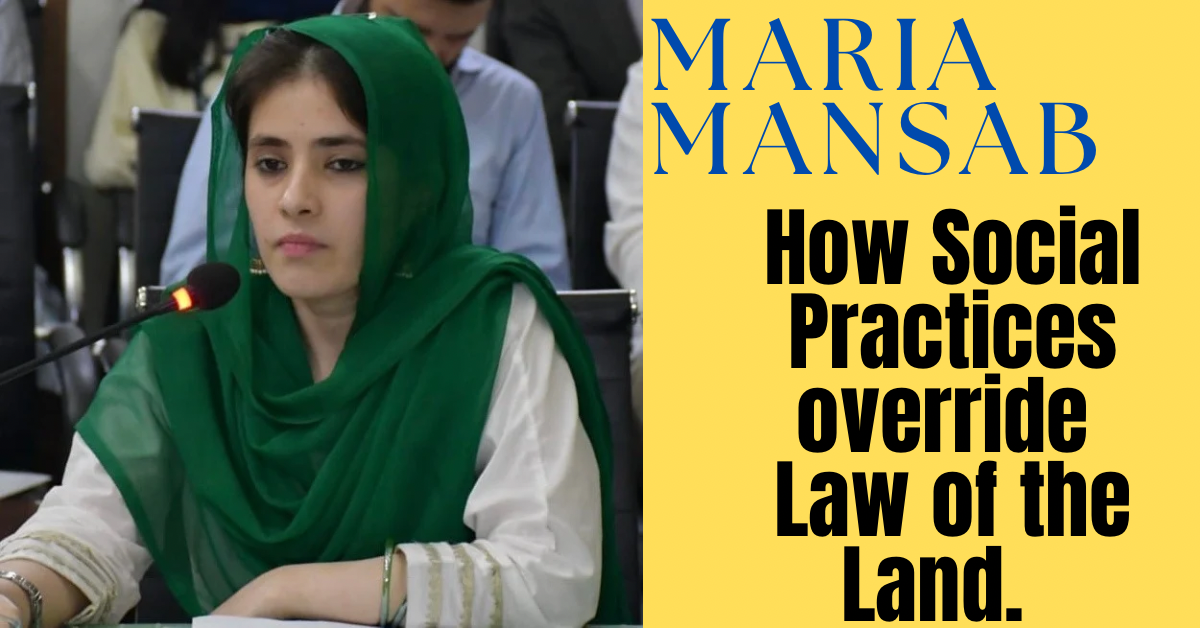A few days back, a shocking video ripped through Pakistan’s timelines: a woman and a man, taken into a desert landscape in Balochistan’s Degari area close to Quetta, shot in daylight. The video did what courts, committees, and codes tend not to do in Pakistan: it forced the state to react. Arrests were made. Condemnations flowed. The Balochistan Assembly adopted a rare, unanimous resolution: “No one has the right to act as judge, jury, and executioner.” And yet the underlying question still awaits answer: will cultural codes, namoos, ghairat, and jirga decrees continue to supersede national law?
Initial social media narratives painted the two as lovers who had married against their tribe’s will. Later, officials explained that both were married to someone else and had children, and that the relationship was an extramarital one. But even this explanation does not alter the core question: does it justify killings? In societies governed by parallel justice systems, even the possibility of a relationship, real or fabricated, can be a death sentence. There is also a darker, more sinister possibility: that the accusation itself was weaponized. This recalls the real-life story behind the Iranian movie, “The Stoning of Soraya M.” Soraya’s husband, a prison guard with a petty criminal record, wanted to marry a 14-year-old girl. But did not want to support two families or return Soraya’s dowry. She was convicted of adultery and killed simply for defying the desires of influential men. The parallels are haunting. In both cases, the so-called “honor” being defended was not rooted in virtue, but in power, male ego, and tribal retribution. When justice serves the interests of the powerful, love, consent, or even mere existence can become a woman’s greatest crime.
In Pakistan, there are dozens of Shazia Bibis, murdered by her husband in Naseerabad last October, and Asiya Bibis, murdered by her uncle in July 2025, whose names fade from collective memory within hours. And the teenage girl from Rawalpindi who refused to marry her cousin and was killed by her father. These are not exceptions; they are the norm. The Human Rights Commission of Pakistan (HRCP) estimates that a minimum of 405 honor killings occurred in 2024 alone; 1,203 were reported between 2021 and 2023. It is nearly certain the actual figure is higher, families collude, police turn a blind eye, society deems it izzat (Honour).
Pakistan criminalized honor killings in 2016 following the killing of Qandeel Baloch, closing the loophole that allowed the perpetrators to go free if they were forgiven under diyat laws. But the promise of the law is continually betrayed by parallel justice systems, jirgas, and sardari codes that continue to command loyalty, fear, and obedience in Balochistan and Sindh. In Degari, it was widely reported that a tribal jirga had directed the murders. Whether or not that is ultimately proven, the fact that it is believable tells you everything about the state’s missing writ.
More jarring is the fact that parliamentarians cast ballots to criminalize jirgas in Islamabad while the same politicians often chair them back, levying “hospitality fees,” issuing life-and-death sentences, and ruling on women’s destiny as if the Constitution were a preference. “These feudal lords are the state’s voters. Challenging them means challenging the political structure itself.”
Among the 16 Balochistan Nasirabad district arrests was a tribal leader and the woman’s mother, Gul Jan Bibi, who openly defended the murders as acts under “centuries-old Baloch traditions.” Her video went viral, too, proof that impunity is not hidden; it is performed.
The video came out a month and a half after the murders. The region has Levies and security personnel, but no one ever found out until it went viral. People also do not trust the courts. They don’t register FIRs. Honor killing is not just a cultural artifact; it is a tool of social control. The killings send a message: we own you, your body, your choices. Without our approval, you don’t exist.
Cultural codes will continue to override national law as long as the state can allow itself to be outflanked by custom, intimidated by feudal might, and diverted by virality. The choice is clear: either the Constitution governs all of Pakistan, or merely the areas that trend.

